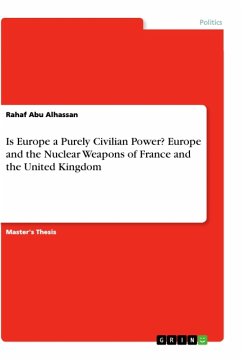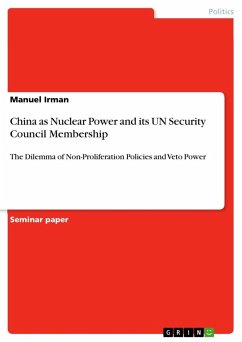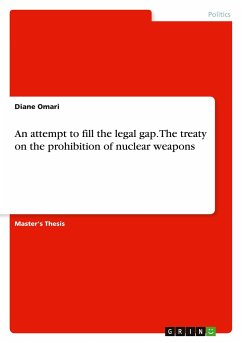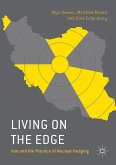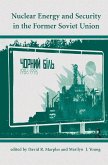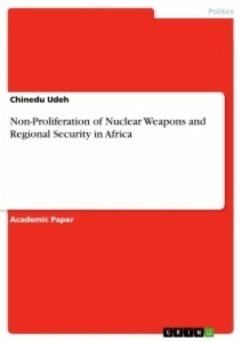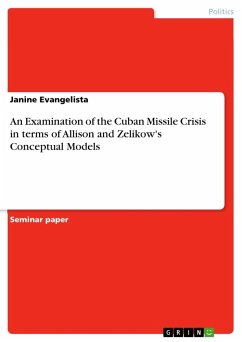Master's Thesis from the year 2014 in the subject Politics - International Politics - Region: Western Europe, grade: 2, University of Dusseldorf "Heinrich Heine", language: English, abstract: This work aims to combine the discourse on civilian power Europe and the discourse on the two EU member states: namely, France and the UK possessing nuclear forces, and determine whether the EU is indeed a civilian power. And, if so, it aims to determine how nuclear weapons fit into a civilian power collective identity of the EU. The question will be addressed again in the concluding section of this work, and will be excluded from the analysis below, the work will proceed as follows: the next section is an analysis on the discourse on the notion of civilian power Europe, how scholars interpret it, to what extent does it receive support from scholars and whether it is the only conceptualisation of the EU by politicians and scholars. This is a key information to answer the first part of the research question; whether the EU is a civilian power and if yes then is it just a civilian power? Following, the first chapter discusses arms control, non-proliferation and disarmament; a brief historical background about the efforts against proliferation, an analysis on the non-proliferation policies and how the EU is devoting attention and efforts in the fight against proliferation is given. The second chapter is devoted for France's and the United Kingdom's nuclear weapons; facts about their nuclear arsenals and their nuclear cooperation. The third chapter is about the Common Foreign and Security Policy and the proposals on European nuclear deterrence and how this affects the framing of EU as a civilian power. The final chapter discusses the legality of nuclear weapons in the international law according to the advisory opinion of the International Court of Justice in 1996. Finally, in the conclusion, the analyses and discussions in the main parts are deployed to answer the research question addressed at the beginning of this research.
Hinweis: Dieser Artikel kann nur an eine deutsche Lieferadresse ausgeliefert werden.
Hinweis: Dieser Artikel kann nur an eine deutsche Lieferadresse ausgeliefert werden.

